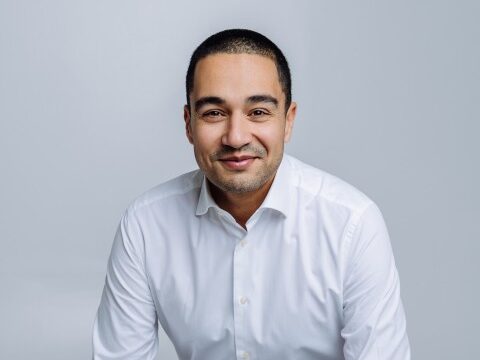The Business Fame proudly welcomes Loukas Tzitzis for an exclusive interview, as he shares insights from his remarkable journey as a global business and technology leader.
1. How would you describe your leadership style?
“Demanding but fair! I am committed to developing and empowering my team. Still, at the same time, I set very high expectations: I expect energy, professionalism, high performance from everyone, focus on results, and a team-first attitude. My principles include transparency, empowerment, mentorship, accountability, adaptability, and collaboration. Leaders must develop people and proactively address change. Building high-performing teams often requires tough decisions, and ‘defining and communicating’ is key—sharp, simple, and clear. Leaders must balance empathy and friendliness, handle conflict with care, and embrace ‘growing pains’ for progress. To drive innovation, I foster a culture of curiosity, ownership, and ‘innovation on the money”.
2. Can you share an example of a time when you successfully motivated a team?
I have been privileged to experience several such moments throughout my career. One of the most important lessons I learned early on is that when leaders establish a genuine connection with their teams and work becomes a shared mission of purpose, motivation no longer requires constant impetus. Rather than pushing individuals toward performance, effective leadership becomes about guiding and aligning efforts toward a common objective. In such an environment, highly motivated individuals naturally strive for excellence.
If I were to highlight a single example where strong motivation translated into exceptional business outcomes, it would be the performance of my regional team during the Covid-19 pandemic.
Even before the pandemic struck, we were already under significant pressure to deliver a major turnaround for the region in terms of business growth and the successful execution of one of the most complex transformation programmes in the industry’s history. When Covid lockdowns began, the situation escalated dramatically. There was no established framework or precedent to follow, and we were forced to adapt in real-time. Compounding this, many of us faced profound personal challenges. In my case, I was separated from my children and unable to see them for nearly two years. Several colleagues across the Middle East and Asia endured similarly difficult circumstances.
Motivating and aligning teams, partners, and head office functions across countries and time zones – some with a 12-hour difference – was one of the most significant leadership challenges I have ever encountered. I have always believed in servant leadership, and this period served as the defining moment that reinforced my conviction in its efficacy.
Despite the adversity, through resilience, commitment, and teamwork, we achieved business results not seen in the region for nearly a decade. More importantly, we revitalised customer relationships that the inherent complexity of the ongoing transformation programme had long strained.
Shortly after reaching these significant milestones, I could finally return to Europe to reunite with my children. Unbeknownst to me, the team organised a surprise farewell celebration, presenting me with a cricket bat signed by every team member and messages expressing gratitude and warm wishes for the future.
As a leader, I was acutely aware of the high expectations I had placed on the team during unprecedented difficulty. Receiving such a heartfelt gesture affirmed for me that, despite the intense challenges we all faced, we had forged a bond that extended far beyond the professional realm: a bond built on mutual respect, shared sacrifice, and enduring trust.
3. How do you handle conflict within a team?
Handling conflict within a team requires a thoughtful, proactive, and empathetic approach. While I am mindful that certain cultures abhor conflict, I believe that when properly managed, conflict can generate new insights and strengthen relationships.
Unresolved conflict within a team can significantly impact trust, productivity, and morale. Therefore, it is essential to address issues early and proactively. When signs of tension arise, timely intervention signals leadership awareness and engagement. Delaying action, by contrast, can be perceived as avoidance or a lack of concern, which may exacerbate the situation.
It is essential to adopt a neutral and objective stance when managing conflict. In these instances, the role of a leader or facilitator is not to pass judgment but to guide the team through resolution. Focusing on observable behaviours, verifiable facts, and desired outcomes helps maintain professionalism and clarity.
Creating psychological safety is equally crucial. Team members must feel comfortable expressing their concerns without fear of judgment, retaliation, or embarrassment. Establishing an atmosphere of mutual respect, confidentiality, and a constructive, problem-solving mindset is the foundation for meaningful dialogue.
To effectively resolve conflict, exploring and understanding its root causes is necessary. Often, underlying issues may stem from cultural misunderstandings, interpersonal dynamics, or structural challenges. Asking open-ended, non-confrontational questions and listening attentively to all perspectives allows for a clearer understanding of the situation.
A productive resolution process shifts the focus from fixed positions to underlying interests. Encouraging individuals to articulate the reasons behind their viewpoints helps uncover shared goals, making reaching collaborative and mutually beneficial solutions easier. Respectful and inclusive dialogue is essential here; every team member should be allowed to speak without interruption. Recognising and adapting to varying communication styles, especially in culturally diverse teams, further enhances the effectiveness of the conversation.
Once the team has surfaced ideas and built alignment, it is essential to co-create practical solutions and define clear action plans. This involves jointly agreeing on the next steps, allocating responsibilities, setting timelines, and establishing how success will be evaluated.
Finally, conflict resolution is not complete without follow-up. Scheduled check-ins help ensure that commitments are honoured and that relationships strengthen over time. Monitoring progress and making adjustments as needed demonstrates accountability and reinforces a culture of continuous improvement and collaboration.
4. What strategies do you use to develop and grow your team members?
Talent development must align with the company’s size, lifecycle, and culture. The generic principles are the same, but there is no one-size-fits-all approach. The first step is setting a clear organisational agenda for development and assessing the current state.
A growth-oriented culture fosters learning and personal development, helping employees transcend their roles, unlock new potential, and, where necessary, help them transition to another role. I prioritise mentorship, coaching, and succession planning to cultivate the next generation of leaders. Performance assessments allow objective identification of strengths and areas for improvement. By aligning talent aspirations with business needs, I strive to create tailored development plans that enhance skills and boost employee retention and engagement. Success truly starts with having the right people in the right place at the right time, and that is why I always say that people are our greatest asset, and only by investing in the growth of the talent pool can any company ensure long-term success.
5. What do you believe is the most important quality of a successful leader, and why?
There is no single quality that can significantly improve a leader! In today’s globally interconnected marketplace, leaders must develop several qualities and adjust their priorities depending on their geography, industry, and career stage.
My journey has taught me that excellent communication skills, adaptability and EQ are critical. You can plan meticulously, but unexpected challenges will arise, and how you respond defines your leadership. I have also learned the power of humility: no one knows everything, and listening is just as essential as leading. Surrounding yourself with the right people and creating an environment where ideas and feedback are encouraged makes all the difference. Finally, remember that winning matters, and those who sell win. Those who play to participate and do not sell are quickly and easily forgotten!










